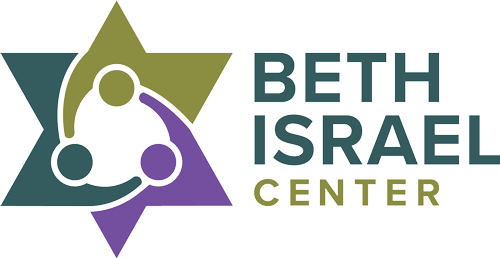Strategic Plan
2022 to 2027
Affirmed by Beth Israel Board Of Directors: January 2022
Out of a strong commitment to our kahal, and in anticipation of celebrating Beth Israel Center’s 75th anniversary as a congregation, the strategic planning committee spent a year investigating, discussing, and evaluating our strategic goals for the next 5 years. The committee concluded that it is important to first acknowledge that our kahal embraces four core values:
“Belonging - שייכות (Shayachut)”: Feeling that this is my Jewish community and it brings me a sense of personal significance.
“Joy - שמחה (Simchah)”: Feeling enriched and moved and awake.
“Learning - לימוד (Limud)”: Feeling that my Jewish journey is respected and nourished.
“Purpose - כוונה (Kavannah)”: A community that is thoughtfully organized, and engenders confidence and pride in the institution. A community that operates consistent with its values.
After examining our mission statement, and determining that it is largely still relevant, committee members were assigned various sectors within the kahal from which to gather information. Although not an exhaustive list, examples include: education, ritual, membership, social justice, youth, young adults, staff, and financial development. The committee was asked to speak to a variety of congregants and staff, ask questions, listen, and bring back an assessment as to future goals and aspirations. The discussion of who we are and who we wish to be that followed, revealed in a fairly obvious way these core values, to which we aspire.
“Belonging” means that concerted efforts are made to help all feel welcome regardless of differences in Jewish background, race/ethnicity, gender identity, family status, age, and level of synagogue involvement, to name a few examples. Each person is important to the community, and their concerns and questions are valued and appreciated.
“Joy” is about creating a sense of fulfillment in all that we offer, whether it is our daily Jewish rituals, holiday liturgy and celebrations, social activities and/or social justice initiatives. While it was recognized that every member would not experience joy at every gathering, the goal is to help each member feel enriched, moved and enlivened by the events they choose to attend.
“Learning” is about offering Jewish educational opportunities that meet each member of the Kahal where they are. Whether it is our preschool programs, Talmud Torah, adult education, youth group or educational social events, we need to understand that not everyone is in the same place. We wish to convey respect for each person, and provide opportunities for each person to begin where they are and learn more.
“Purpose” relates to how we run our institution. It should be organized in such a way so that members have access to leadership and staff, feel heard, and are able to understand how and why certain decisions are made, and how and why certain things are done, including how our institution engages with the larger Jewish and non-Jewish community. The process should make us proud, whether or not every individual agrees with every outcome.
Ultimately, a few major goals were identified to help us further create a kahal that embraces and lives these core values.
Continue to build our community through outreach to current and prospective members by maintaining engagement through a variety of meaningful opportunities. Progress might include but is not limited to programs targeted to the needs of particular groups such as young adults and seniors; and social programs not linked to ritual and holidays.
Study and have conversations that focus on creativity and innovation in new rituals and practices around inclusiveness. These efforts should focus on, but are not limited to, the following groups: families and couples with “Jewish adjacent” people, LGBTQ+ people, people of color, people across the age spectrum, and people with disabilities. Progress might include learning about how to better support these groups and advancing practices and rituals that foster inclusion.
Engage in efforts to enhance respect for our staff and their contribution to the kahal. Progress should include creating a staff endowment fund that can be used for hiring additional professional staff and increasing compensation. Increasing our endowment both supports our professional staff and sustains the long-term financial stability of BIC.
Be a community that is aware of our interactions and impact on the larger local and global community. Be a community in which awareness of social and environmental justice issues directs every decision we make. Be a community that pursues justice in accordance with Jewish practice and values. Progress might include but is not limited to: working to combat racism, working on behalf of marginalized communities, use of our land, how our kitchen operates, working toward being carbon neutral, and combating anti-Semitism.
Plan a 75th anniversary celebration in which the lead up to the event, the event, and event follow-up not only provides fundraising opportunities, but also creates joy, deeper involvement in the kahal, and new relationships. Progress might include the celebration of a new Torah scroll for our kahal, engaging broad sections of the community, and establishing a sustainable development strategy.
The Strategic Planning Committee consisted of: Trudy Barash, Shoshana Bernard-Donals, Emily Desai, Yonah Drazen, Jennie Edes-Pierotti, Rick Ezell, Samuel Gellman, Sara Mandell, William Schwab, Karen Shevet Dinah and chairperson, Cynthia Hirsch. Rabbi Betsy Forester and Executive Director Elissa Pollack also participated.
